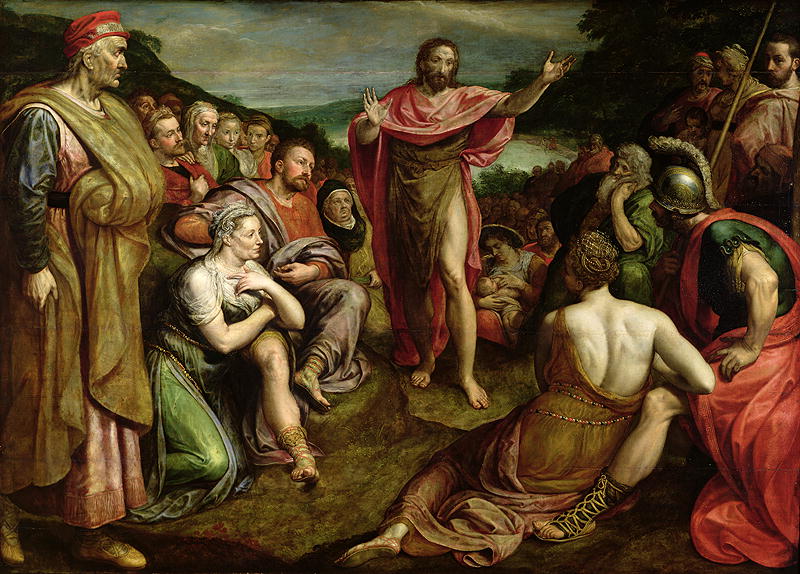 James 2:6-7
James 2:6-7
But you have dishonoured the poor. Is it not the rich who oppress you? Is it not they who drag you into court? Is it not they who blaspheme the excellent name that was invoked over you?
James’ hearers have dishonoured the poor. While the NRSV refers to the poor in general, it is perhaps better to follow other translations which read, “You have dishonoured the poor man” (Humeis de ētimasate ton ptōchon), thus reading the aorist verb as a reference to the treatment of the poor man in the little story of verses 2-4. The very man who is poor and has been treated so shamefully has been chosen by God! In their treatment of the poor man, then, the congregation has set itself in opposition to the God who chooses the poor of this world. The verb (from atimazo) is used in the Old Testament for those who despise their neighbour or crush the poor (Proverbs 14:21; 22:22). Not only have they dishonoured the poor man, they have done so by aligning themselves with the rich. You have done this, says James; You!
There follow, then, in quick succession, three rhetorical questions, each of which presupposes a positive answer: are not the rich those who oppress you (Ouk hoi plousioi katadunasteuousin humōn)? Is it not they who drag you into court (kai autoi helkousin humas eis kritēria)? Is it not they who blaspheme the excellent name (Ouk autoi blasphēmousin to kalov onoma)?
The verb katadunasteuō, “oppress” or “exploit” is used elsewhere in the New Testament only in Acts 10:38 to refer to the activity of the devil. It is common, however, in the Old Testament prophets who use it to describe the oppression of the poor, especially the widows and orphans, by the wealthy (cf. 1:27; see, for example: Jeremiah 7:6; 22:3; Ezekiel 18:7, 12, 16; 22:7, 29; Amos 4:1; 8:4; Habakkuk 1:4; Zechariah 7:10; Malachi 3:5). Here in James, one particular way in which this oppression occurs is by the rich “dragging” (helkō) congregational members before the courts. For Vlachos, the word suggests violent treatment, whether physical or legal (74). In both cases the verbs are in the present tense, which suggests that these actions are current and ongoing.
Verse 7 provides additional description of the rich and reveals that they are not Christians: rather, they blaspheme “the good name that was invoked over you” (to kalov onoma to epiklēthen eph’ humas). Like the previous verbs, this one is also in the present tense, suggesting present and ongoing action. While the term typically referred to verbal abuse, insulting language, or slander when directed toward a person, when directed against God or things considered holy, it denoted irreverence or impiety (Vlachos, 74). In this case the rich blaspheme the good and excellent name of Jesus (cf. verse 1). Davids (113) and McKnight (201-202) both associate this invocation of the name of Jesus with the believer’s baptism, when, being baptised in his name, they become bearers of his name. Davids also notes that the phrase “to call a name upon” someone was a Septuagintal phrase denoting possession or relationship. The NIV captures this idea by translating the phrase “the noble name of him to whom you belong.” Vlachos notes that the preposition epi used with the accusative indicates a downward direction, implying that the name of Jesus now rests upon those who are baptised (75; cf. 1 Peter 4:14-16).
It is evident in this passage that James’s hearers are themselves poor, being contrasted with the rich. Who are the rich in this passage, and why would James’s congregation seek to curry favour with them? We have already seen that the rich are not Christians, but may be either Jews or gentiles. Judaism was a legal religion in the Roman Empire whereas Christianity was not. Not only were the Christians poor, they were also socially and legally marginalised. Perhaps the poor Jewish Christians aspired to the greater wealth and privileges of their non-Christian compatriots. Whatever the actual historical and social dynamics, however, their own treatment of the poor man as well as their obsequious deference toward the rich aligned them with the very people who were oppressing and abusing them. For James, that the blasphemer and abuser was more welcome in the church than the poor beggared belief. They not only dishonoured the poor man whom God had chosen, they were choosing those who persecuted the poor and who blasphemed the honourable name of him who had called them. They have, in effect says Davids, sided with the devil against God (112).

